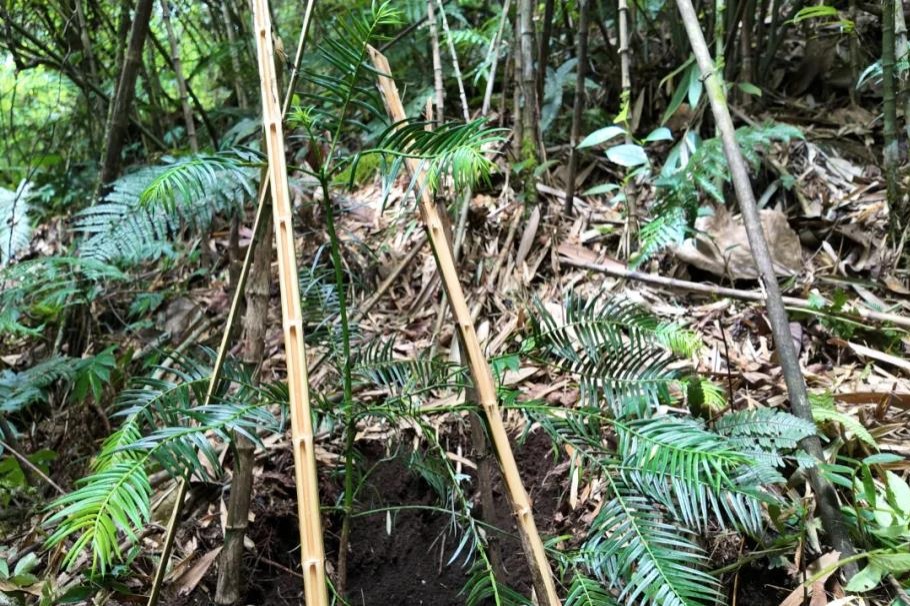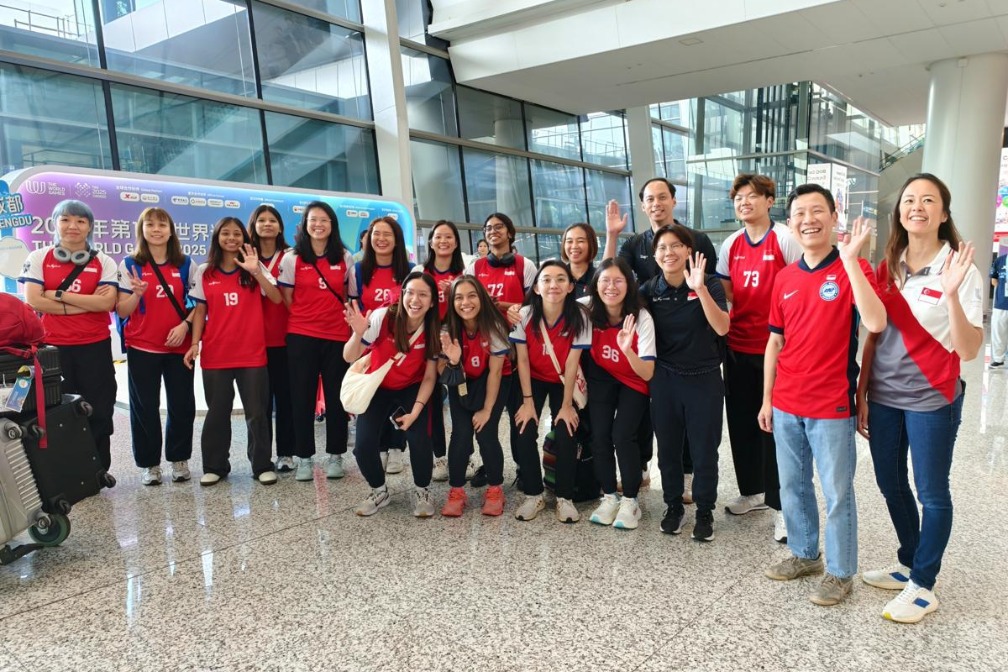Virus hunter recognized for key discovery
Researcher given award by US foundation for landmark work on hepatitis B

While many might view his work as a laborious trek into the unknown, virologist Li Wenhui treats it as an intimate conversation with nature.
"Conducting fundamental research is an inherently difficult and demanding job, but the joy of decoding the mysterious and unknown is unparalleled," said Li, a researcher at the National Institute of Biological Sciences in Beijing and a professor at the Tsinghua Institute of Multidisciplinary Biomedical Research.
"I always tell my students that the point is not to glamorize the pain and exhaustion involved, but to gain insights through analysis as if taking pleasure in talking with nature," he said.
For Li, his communication channel with the nature is built on an infinitely small agent-the virus.
More specifically, he zeros in on the virus receptor-the specific protein on membranes of human cells that provide the entry point for a virus to attach itself and replicate.
Discovering the protein is a key step in understanding viral infections and shedding light on research into drugs and vaccines that can block transmission of a virus.
Li, 50, finished his medical degree and a doctorate in pathogen biology in China before becoming a postdoctoral fellow at Harvard Medical School in the United States in 2001.
In 2003, he made a breakthrough by detecting the functional receptor for the virus that caused severe acute respiratory syndrome, which claimed more than 770 lives worldwide.
"It took us about four months to find the receptor-the first to do so in the world," he said.
"Looking back, that piece of research still looked very neat and swift."
HBV breakthrough
Following the SARS breakthrough, Li said he was eager to find another area of research closely related to social development and health.
The hepatitis B virus, which attacks the liver and can cause diseases such as cancer and cirrhosis, came into his sights.
The World Health Organization estimated that 257 million people were living with chronic HBV infections in 2015 and about 887,000 people died of the virus that year.
The virus itself was discovered by Nobel laureate Baruch Blumberg in the 1960s, leading to the development of targeted blood tests and vaccines in the early 1970s.
But global scientists were unable to locate the receptor for the virus on human cells for more than four decades. Existing treatment does not cure the disease and most patients must take medication.
"To put it simply, the scale of hard work in regards to pinpointing the HBV receptor was at least twice what I encountered when studying SARS," Li said.
He also has a personal connection with the suffering inflicted by HBV infections.
When he was an undergraduate student at the Lanzhou Medical College in Gansu province he interned at the infectious diseases department of a local hospital, where he witnessed the agony and frustration of many HBV patients.
"Doctors aspiring to address issues of patients are usually constrained by limited medical knowledge and treatment options. The solution lies in boosting basic research and medical science," Li said.
In China, both the incidences and death rates of viral hepatitis-of which HBV account for the majority-rank among the highest of all infectious illnesses, according to the National Health Commission.
After completing his studies in the United States, Li returned to China in October 2007. He assembled a new team at the National Institute of Biological Sciences in Beijing, and set about looking for "the gate" through which HBV invades the human body.
"I was not sure if or when my team would find it," he said, adding the "thrill of uncertainties" made fundamental research "fun".
The breakthrough came on the evening of Jan 7, 2012, when the team found a protein that was highly likely to be the receptor.
They conducted more laboratory tests in the following months to collect new data and validate their results.
In November 2012, Li and his team finally published their research in the scientific journal Elife-one of the papers the team had released in five years.
Studying results not being published in a scientific journal can frustrate some researchers, but Li believes only worthwhile findings that push the frontiers of science should be published.
"Papers are important as they explain new observations and thinking. Our time and attention should be devoted to publishing papers at critical points of research, rather than pumping out one for every single phase," he said.
Standards
Li's passion for cutting-edge innovation and disapproval of ambiguity in research work are woven into his teaching. At the institute, he leads a team of about 20 students, with the majority in their 20s.
"I set two basic requirements for them: standards and good choices," he said. "Their work should be authentic, reliable, accurate and up to standard in every aspect. Meanwhile, I expect them to have good taste in their choices of research topics. Maybe they prefer the most transformative scientific questions, or they are interested in research that has an impact on society or is truly interesting," he said.
In November, Li was awarded the 2021 Baruch S. Blumberg Prize by the Hepatitis B Foundation, a nonprofit organization named after the research physician.
In an online comment, Nobel laureate and US virologist Charles Rice, said: "This is a most fitting recognition for a truly transformative discovery. ... Wenhui and his team's success has provided a remarkable new tool for HBV virology and reenergized the field to find a functional cure for chronic hepatitis B. Bravo!"
Li said he now divides his time between deepening understanding of the virus and developing new therapies to treat the disease.
"Meaningful outcomes from fundamental research can always be transformed into applications, sooner or later," he said."In the end, it is the spirit of exploration that matters."
































